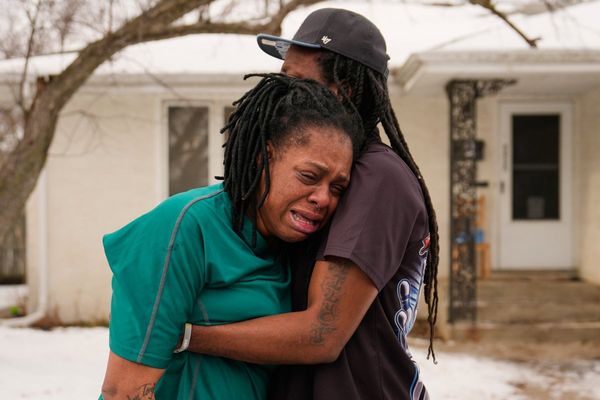
A Rome judge is poised to deliver a verdict in a criminal defamation trial against the Italian anti-mafia author Roberto Saviano for calling the prime minister, Giorgia Meloni, a “bastard”.
In a case that has attracted international attention and criticism of Italy’s draconian defamation laws, Saviano, who has lived under police protection since the publication of his bestselling book Gomorrah, faces up to three years in prison if found guilty at Rome’s criminal court on Thursday.
The global writers’ association, Pen International, has expressed solidarity with Saviano and urged Meloni to drop the charges.
Sabrina Tucci, a spokesperson for Pen who is in Rome for the hearing, said: “The fact that this lawsuit was initiated by Meloni, Italy’s prime minister, serves as a dangerous warning to writers and journalists, suggesting that their words could lead to prolonged legal battles, financial strain, emotional distress, and possible imprisonment.
“Dissenting the opinion of the government should not be equal to getting into trouble with the law.”
The case dates back to a TV interview in December 2020 in which Saviano castigated Meloni and her fellow far-right leader Matteo Salvini over their vitriol towards charity-run ships rescuing people in the Mediterranean.
Asked to comment on the death of a six-month-old baby from Guinea in a shipwreck, Saviano said: “All the bullshit [said about NGOs], sea taxis, cruises [for migrants]. All I can say is: bastards, how could you? Meloni, Salvini: bastards.”
At the time, Meloni, whose government came to power last October, described the high-profile author and journalist as a “serial hater”, adding that she was “sick of witnessing this disgusting profiteering”.
Saviano has had libel cases brought against him by two other current government ministers, including the deputy prime minister, Salvini, a former interior minister who sued the author in 2018 after he referred to him as “il ministro della mala vita” – which roughly means “minister of the criminal underworld” in a post on social media. The case is continuing.
In May this year, Saviano won a civil defamation case brought in 2020 by Gennaro Sangiuliano, the culture minister in Meloni’s government.
Defamation is punishable in Italy with prison terms of between six months and three years. Italy’s highest court has previously urged lawmakers to rewrite the law, arguing that prison time in such cases is unconstitutional.
In 2022, Italy ranked 58th in the Reporters Without Borders world press freedom index.
Since becoming prime minister, Meloni has also sued journalists at the leftwing newspaper Domani, while the finance minister, Giancarlo Giorgetti, recently said he would also sue the outlet over a story. Journalists in Italy regularly receive threats of legal action from members of Meloni’s government.
“However, I don’t think life for journalists has got any worse [under her government] as there has always been pressure from all governments and cabinets,” said Gianni Riotta, the director of the school of journalism at Rome’s Luiss University. “Journalists should be more aware, especially on social media … It is always better never to make personal insults. On the other hand, politicians have to accept that a public figure is a public figure.”







